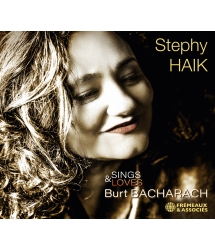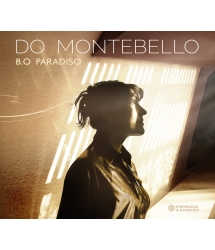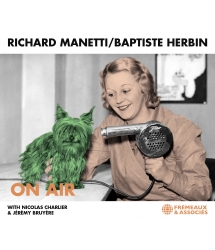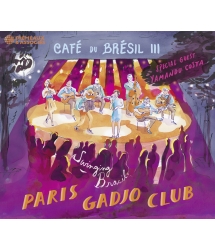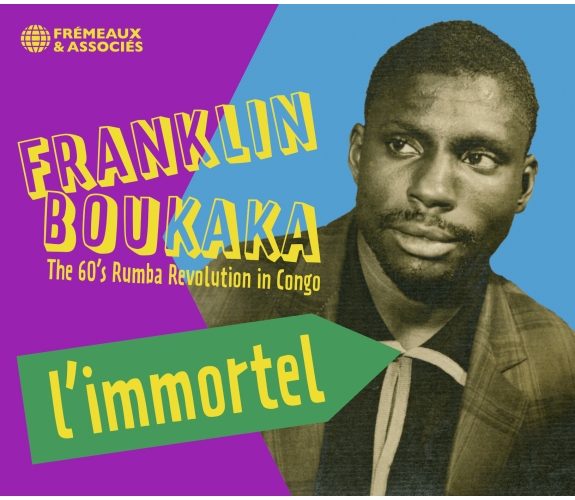- Our Catalog
- Philosophy
- Philosophers of the 20th century and today
- History of Philosophy (PUF)
- Counter-History and Brief Encyclopedia by Michel Onfray
- The philosophical work explained by Luc Ferry
- Ancient thought
- Thinkers of yesterday as seen by the philosophers of today
- Historical philosophical texts interpreted by great actors
- History
- Books (in French)
- Social science
- Historical words
- Audiobooks & Literature
- Our Catalog
- Jazz
- Blues
- Rock - Country - Cajun
- French song
- World music
- Africa
- France
- Québec / Canada
- Hawaï
- West Indies
- Caribbean
- Cuba & Afro-cubain
- Mexico
- South America
- Tango
- Brazil
- Tzigane / Gypsy
- Fado / Portugal
- Flamenco / Spain
- Yiddish / Israel
- China
- Tibet / Nepal
- Asia
- Indian Ocean / Madagascar
- Japan
- Indonesia
- Oceania
- India
- Bangladesh
- USSR / Communist songs
- World music / Miscellaneous
- Classical music
- Composers - Movie Soundtracks
- Sounds of nature
- Our Catalog
- Youth
- Philosophy
- News
- How to order ?
- Receive the catalog
- Manifesto
- Dictionnary











- Our Catalog
- Philosophy
- Philosophers of the 20th century and today
- History of Philosophy (PUF)
- Counter-History and Brief Encyclopedia by Michel Onfray
- The philosophical work explained by Luc Ferry
- Ancient thought
- Thinkers of yesterday as seen by the philosophers of today
- Historical philosophical texts interpreted by great actors
- History
- Books (in French)
- Social science
- Historical words
- Audiobooks & Literature
- Our Catalog
- Jazz
- Blues
- Rock - Country - Cajun
- French song
- World music
- Africa
- France
- Québec / Canada
- Hawaï
- West Indies
- Caribbean
- Cuba & Afro-cubain
- Mexico
- South America
- Tango
- Brazil
- Tzigane / Gypsy
- Fado / Portugal
- Flamenco / Spain
- Yiddish / Israel
- China
- Tibet / Nepal
- Asia
- Indian Ocean / Madagascar
- Japan
- Indonesia
- Oceania
- India
- Bangladesh
- USSR / Communist songs
- World music / Miscellaneous
- Classical music
- Composers - Movie Soundtracks
- Sounds of nature
- Our Catalog
- Youth
- Philosophy
- News
- How to order ?
- Receive the catalog
- Manifesto
- Dictionnary
CLAUDE BOLLING BIG BAND
CLAUDE BOLLING
Ref.: FA473
Label : Frémeaux & Associés
Total duration of the pack : 1 hours 12 minutes
Nbre. CD : 1
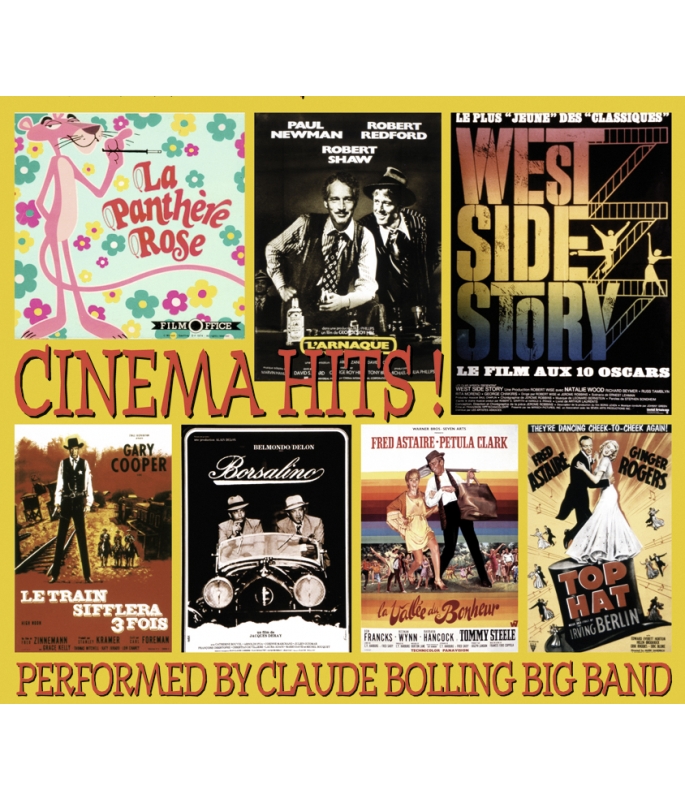
CLAUDE BOLLING BIG BAND
CLAUDE BOLLING BIG BAND
For 'Cinema Hits' Bolling, in his unique way, has managed to jazz up several classic tunes of the cinema – from 'The Sting' to 'Doctor Zhivago' to 'High Noon', thus enabling us to see these immortal works in an unexpectedly new light. All in all, the colors are quite different without the loss of any original sparkle. Bolling Hot ! Ivan Brunet - The Observer
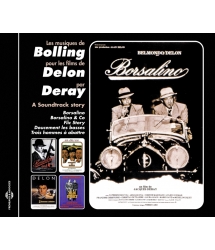
CLAUDE BOLLING - ALAIN DELON - JACQUES DERAY
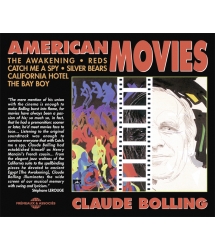
THE AWAKENING, CATCH ME A SPY, SILVER BEARS, REDS,...
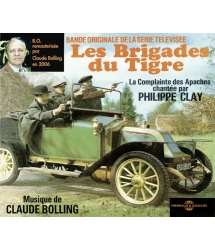
CLAUDE BOLLING




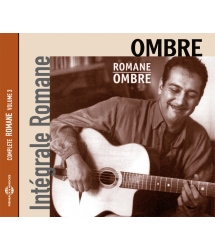
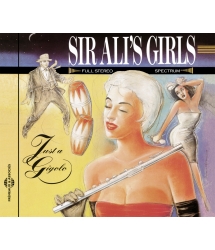
-
PisteTitleMain artistAutorDurationRegistered in
-
1WEST SIDE STORYCLAUDE BOLLINGSTEPHEN SONDHEIM00:09:471996
-
2BORSALINOCLAUDE BOLLING00:06:551996
-
3RAINDROPS KEEP FALLIN ON MY HEADCLAUDE BOLLINGDAVID HAL00:04:081996
-
4OLD DEVIL MOONCLAUDE BOLLINGEY HARBURG00:04:241996
-
5LA CHANSON DES JUMELLESCLAUDE BOLLINGJACQUES DEMY00:03:571996
-
6THE PINK PANTHERCLAUDE BOLLING00:03:051996
-
7LAWRENCE OF ARABIACLAUDE BOLLING00:05:301996
-
8THE ENTERTAINERCLAUDE BOLLING00:04:201996
-
9LAURACLAUDE BOLLINGJOHNNY MERCER00:04:331996
-
10AS TIME GOES BYCLAUDE BOLLING00:03:511996
-
11CHEEK TO CHEEKCLAUDE BOLLING00:04:281996
-
12LA STRADACLAUDE BOLLING00:05:521996
-
13HIGH NOONCLAUDE BOLLINGNED WASHINGTON00:04:521996
-
14THEME DE VALENTINCLAUDE BOLLING00:02:241996
-
15EVERYBODY WANTS TO BE A CATCLAUDE BOLLINGAL RINKER00:04:101996
CINEMA HITS! PERFORMED BY CLAUDE BOLLING BIG BAND FA 473
CINEMA HITS!
PERFORMED BY CLAUDE BOLLING BIG BAND
Amusante coïncidence, les trente-cinq ans de cinéma de Claude Bolling se télescopent en 1995-96 avec les 100 ans du Septième Art. C’est effectivement en 1960-61, avec Les Mains d’Orlac d’Edmond Gréville, que le jeune compositeur signe sa première partition pour long-métrage. Ce film à suspense flirtant avec le fantastique, notamment interprété par deux grands comédiens anglo-saxons, Mel Ferrer et Christopher Lee, marque le début d’une longue carrière vouée à l’image, nourrie par une série de fructueuses rencontres : René Clément (Le Jour et l’Heure), Jacques Deray (Borsalino, Flic Story, On ne Meurt que Deux Fois), Philippe de Broca (Le Magnifique), Pierre Tchernia (La Gueule de l’Autre), René Goscinny (les Lucky Luke), Marcel Camus (Le Mur de l’Atlantique) et même Buster Keaton (Fiancées en Folie). Ces collaborations cinématographiques permettent à Claude Bolling de développer un large éventail expressif. Elles confirment son statut de compositeur aux multiples facettes, d’artiste-caméléon tout à tour romantique, violent, inquiet ou lyrique.Pour célébrer comme il convient ce double anniversaire, le compositeur de Borsalino a réuni son big band et ses deux chanteurs, Jeffery Smith et Laïka, pour le présent CD. Cinema Hits, album-synthèse où Claude Bolling homme de cinéma se joint à Claude Bolling homme de jazz. De fait, l’intérêt de Cinema Hits est double : d’abord, on y retrouve de grands standards du Septième Art, à la base composés dans un esprit jazz, ici interprétés de façon personnelle (L’Arnaque, West Side Story, Laura). Ensuite, Claude Bolling a sélectionné quelques grands thèmes de cinéma, d’inspiration plutôt symphonique, qu’il a lui-même amenés au jazz, avec des arrangements brillants et sophistiqués (Lawrence d’Arabie, Docteur Jivago, Le Train Sifflera Trois Fois). Voilà donc un coup de projecteur inattendu sur des classiques de l’écran que l’on pensait connaître par cœur et que, brusquement, on redécouvre, habillés de nouvelles couleurs, enrichis par une approche inédite.
It is an amusing coincidence that the anniversary of Claude Bolling’s thirty-five years in cinema should just happen to fall in 1995-96, at the same time as the centenary of motion pictures. Indeed, it was in 1960-61, for Les Mains d’Orlac, directed by Edmond T. Gréville, that the young composer wrote his first score for a full-length film. This thriller with a touch of fantasy, starring Mel Ferrer and Christopher Lee, marked the beginning of a long career devoted to the cinema, during which he met and worked with such great names as René Clément (Le Jour et l’Heure), Jacques Deray (Borsalino, Flic Story, On ne Meurt que Deux Fois), Philippe de Broca (Le Magnifique), Pierre Tchernia (La Gueule de l’Autre), René Goscinny (the Lucky Luke films), Marcel Camus (Le Mur de l’Atlantique), and even Buster Keaton (Seven Chances). His work with these directors enabled Claude Bolling to develop a wide range of expressive possibilities. It confirmed his many facets as a composer and his chameleon-like capacity for adapting to all sorts of moods and emotions: from romance to violence and from anxiety to lyricism.To celebrate this double anniversary as it truly deserves, the composer of Borsalino has brought together his big band and his two singers, Jeffery Smith and Laïka, for this CD entitled Cinema Hits, which provides a synthesis of the work of Claude Bolling, man of the cinema and Claude Bolling the jazzman. Cinema Hits is in fact significant on two accounts: on the one hand, we find some of the great classic tunes of the cinema, basically written in a jazz style and performed here in a personal way (The Sing, West Side Story, Laura); secondly, Claude Bolling has selected a number of great film themes that are more symphonic in inspiration and has jazzed them up, with dazzlingly sophisticated arrangements (Lawrence of Arabia, Doctor Zhivago, High Noon). Such treatment enables the listener to see these works – which he thought he knew by heart – in an unexpectedly new light: suddenly, through this rich new approach, the colours are quite different, without losing any of their original sparkle.
1 - West Side Story - 9:45
Leonard Bernstein – Stephen Sondheim
(Campbell Connely and Co/Chappell Co Inc)
En guise d’ouverture, West Side Story, la fameuse comédie musicale de Leonard Bernstein, Stephen Sondheim et Jerome Robbins s’impose avec évidence : tournée en 1961 par Robert Wise, elle a profondément marqué les spectateurs du monde entier, frappés par la modernité de ce Roméo et Juliette sur fond de macadam et de guerre des gangs. “Il y a quelques années, raconte Claude Bolling, le Festival de Cabourg m’a demandé de concevoir une suite pour big band basée sur la partition de Leonard Bernstein, à l’occasion d’un hommage à George Chakiris. J’ai donc orchestré les différents thèmes de West Side Story en faisant jouer les contrastes entre, par exemple, le romantisme de Maria et le côté vif, coloré de America. Cette version, dont l’introduction s’inspire de l’interprétation du batteur de jazz Buddy Rich, a rencontré beaucoup de succès, au point d’intégrer le répertoire de l’orchestre.”
By way of an opening piece, West Side Story – the famous musical by Leonard Bernstein, Stephen Sondheim and Jerome Robbins – was an obvious choice. Filmed in 1961 by Robert Wise, this film, a modernised version of the Romeo and Juliet story, set amidst the gang warfare of New York, made a deep impression on audiences the world over. “A few years ago”, explains Claude Bolling, “the Cabourg Festival asked me to write a suite for big band based on Leonard Bernstein’s score, on the occasion of a tribute to George Chakiris. So I orchestrated the various themes from West Side Story, bringing out the contrasts between, for example, the romanticism of Maria and the lively, colourful side of America. This version, with an overture inspired by that of jazz drummer Buddy Rich, was such a success that we took it into the band’s repertoire.”
2 - Borsalino - 6:52
Claude Bolling (Paramount/Bleu Blanc Rouge)
Polar retro construit sur l’association Alain Delon / Jean-Paul Belmondo, Borsalino de Jacques Deray se confond, dans la mémoire collective, avec le souvenir de son leitmotiv pour piano-bastringue et cordes, dont la carrière extra-cinématographique (disque, chanson, pubs, indicatifs) a été phénoménale. Vingt-cinq ans plus tard, du propre aveu d’Alain Delon, “il se trouve toujours un piano ou un orchestre pour attaquer le thème de Borsalino, quel que soit le pays dans lequel j’arrive !”. Devenu également l’emblème musical de Claude Bolling, Borsalino possède évidemment sa place à l’intérieur de Cinema Hits, dans une version de concert précédée d’une introduction rubato au clavier de son compositeur.
Jacques Deray’s thriller Borsalino, set in the 1920’s and starring Alain Delon and Jean-Paul Belmondo as the two accomplices, is inseparable in our minds from its unforgettable the tune for honk-tonk piano and strings. The latter’s career outside the cinema has been phenomenal (record, song, advertising, signature tunes) and even now, twenty-five years later, Alain Delon admits that “there is always a piano or a band ready to strike up the theme from Borsalino, wherever I go, whichever country!” Borsalino has also become a symbol of the Claude Bolling, so it was only right that it should be included in Cinema Hits. In this concert version, the composer plays a rubato introduction on the keybord.
3 - Raindrop Keep Fallin’ on my Head - 4:06
Burt Bacharach – Hal David (JAC Music Inc / Blue Seas Music Inc)
Butch Cassidy and the Kid
Afin de mettre en valeur la voix masculine de l’orchestre, le programme de l’album comprend deux chansons de films où Jeffery Smith fait preuve d’une personnalité à la fois sensible et tonique : d’abord avec Raindrop Keep Fallin’ on my Head qui sert de contrepoint sentimental aux tribulations iconoclastes de Paul Newman et Robert Redford dans Butch Cassidy et le Kid de George Roy Hill (1969).
In order to bring out the fine vocal qualities of the band’s male singer, Jeffery Smith, the programme of this album includes two film songs, in which he displays his sensitive yet lively personality. First of all, we have Raindrops Keep Fallin’ on my Head from Georges Roy Hill’s good-humoured western, Butch Cassidy and the Sundance Kid (1969, starring Paul Newman and Robert Redford.
4 - Old Devil Moon - 4:22
Burton Lane – E.Y. Harburg
(Craxford Music Corp.)
Finian’s Rainbow / La Vallée du Bonheur
Puis avec Old Devil Moon, chant du cygne de Fred Astaire dans un musical crépusculaire, Finian’s Rainbow (La Vallée du Bonheur, 1968), première importante réalisation d’un jeune metteur en scène de 29 ans, Francis Ford Coppola. Repris depuis par des crooners commeFrank Sinatra ou Tony Bennett, Old Devil Moon bénéficie ici d’une orchestration de Bill Byers.
Then Old Devil Moon (Lane and Harburg), Fred Astaire swansong from the musical Finian’s Rainbow (1968), which was the first important film success of a young 29 years old director by the name of Francis Ford Coppola. Since then, Old Devil Moon has been sung by crooners such as Frank Sinatra and Tony Bennett. The orchestra arrangement is by Bill Byers.
5 - La Chanson des Jumelles / A Pair of Twins - 3:55
Michel Legrand – Jacques Demy (Warner Chappell France / B.M.G. Publishing)
Les Demoiselles de Rochefort / The Young Girls of Rochefort
Dans les années soixante, au moment même où la mode délaisse Fred Astaire et Gene Kelly, deux français, Jacques Demy et Michel Legrand inventent une nouvelle forme de cinéma musical avec des œuvres comme Les Parapluies de Cherbourg, Les Demoiselles de Rochefort ou Peau d’Âne, pleines de préoccupations inquiètes (la guerre, la séparation, ledestin), à peine masquées par une légèreté et une joie de vire revendiquées. “Cherchant pour cet album un thèque de film rapide et swing, précise Claude Bolling, j’ai pensé à la Chanson des Jumelles, composée par mon ami Michel Legrand. Sur l’idée des deux sœurs, l’orchestration est bâtie autour d’un duo de sax alto / trombone, figurant le spirituel tandem Catherine Deneuve / Françoise Dorléac.”
In the 1960’s, just as Fred Astaire and Gene Kelly were moving out of fashion, two Frenchmen, Jacques Demy and Michel Legrand, invented a new genre, halfway between opera and musical comedy, including works as Les Parapluies de Cherbourg, Les Demoiselles de Rochefort and Peau d’Âne. Beneath a surface of lightness and joie devivre, they are full of anxious concern (war, separation, destiny). “When I was looking for a film theme that was fast and full of swing for this album” explains Claude Bolling, “I thought of Twins’ Song from Les Demoiselles de Rochefort, composed by my friend Michel Legrand. Taking the idea of the two sisters, the orchestration is built around the alto sax / trombone duet, representing the witty pair Catherine Deneuve / Françoise Dorléac.”
6 - The Pink Panther / La Panthère Rose - 3:03
Henry Mancini (CBS U Catalog Inc.)
Autre compositeur, autre forme d’écriture, Henry Mancini a offert au cinéma quelques thèmes empreints de drôlerie et de délicatesse : Moon River, Baby Elephant Walk et bien sûr, La Panthère Rose, créée pour le générique du film homonyme de Blake Edwards (1963) et devenue ensuite la vedette d’une longue série de dessins animés. “Dans le programme de Cinema Hits, affirme Claude Bolling, cette fameuse Panthère était inévitable : c’est à l’origine un blues burlesque écrit pour big band, servant magnifiquement le saxo ténor, tenu par Plas Johnson dans la première version. Trente ans après la création de ce thème, cela m’intéressait de l’aborder à mon tour, rendant ainsi le change au regretté Henry Mancini qui, dans l’un des ses albums, a repris Borsalino.”
Another composer, another style: Henry Mancini gave the cinema a number of themes characterised by fun and delicacy: Moon River, Baby Elephant Walk and, of course, The Pink Panther, created for the film of the same name by Blake Edwards (1963) andlater used for a long series of cartoons. “This famous Panther just had to be on the programme of Cinema Hits” explains Claude Bolling. “It was originally a burlesque blues written for big band and with a magnificent part for the tenor sax, played by Plas Johnson in the first version. Thirty years after its first performance, I thought it would be an interesting idea to tackle this theme myself, thus setting things even with the late and dearly missed Henry Mancini, who borrowed Borsalino on one of his albums.”
7 - Lawrence of Arabia / Lawrence d’Arabie - Lara’s Song / La Chanson de Lara - 5 :29
Maurice Jarre (Shapiro Bernstein Co Inc) Lara’s Song / La Chanson de Lara
Maurice Jarre – Paul Webster
(Robbins Music Corp.)
Doctor Zhivago / Docteur Jivago
Ce même thème de Borsalino fut également dirigé par une autre grande figure de la musique de film, Maurice Jarre, à l’occasion d’un concert donné en Grande-Bretagne par le London Symphony Orchestra. Claude Bolling et Maurice Jarre firent alors mieux connaissance et, vingt-quatre ans plus tard, le pianiste-compositeur-chef d’orchestre scella leur amitié en donnant une pétillante version valse-jazz de Paris Brûle-t-il ? dans son album The Victory Concert. Aujourd’hui, Cinema Hits prolonge cette démarche avec Lawrence d’Arabie et Docteur Jivago, deux films-clés de la fructueuse rencontre Maurice Jarre / David Lean. “En fait, se souvient Claude Bolling, j’avais écrit un court medley de ces partitions pour l’hommage rendu à Maurice Jarre à la cérémonie des Césars. Je me suis donc servi de cette base pour développer la suite figurant sur ce disque, en essayant d’apporter un éclairage nouveau, original sur les thèmes de Maurice, sans jamais en trahir l’esprit. D’une certaine façon, mon approche rejoint celle de Duke Ellington quant il adaptait pour big band le ballet de Tchaïkovski Casse-Noisette, en lui amenant son regard, sa personnalité et celle de ses solistes.”
The theme from Borsalino was also conducted by another great figure of film music, Maurice Jarre, at a concert given in Great Britain by the London Symphony Orchestra. That gave Claude Bolling and Maurice Jarre an opportunity to get to know each other better and, twenty-four years later, the pianist-composer-conductor sealed their friendship with a sparkling jazz-waltz version of Paris Brûle-t-il ? on his album The Victory Concert. Cinema Hits now takes that idea a step further with Lawrence of Arabia and Doctor Zhivago, two key films in the fruitful collaboration between Maurice Jarre and David Lean. “In fact,” Claude Bolling recalls, “I had written a short medley of these scores for the tribute paid to Maurice Jarre at the Césars* ceremony. So I took that as the basis for the suite that appears on this record, trying to give new and original emphasis to Maurice’s themes, without ever betraying their spirit. In a way, my approach is very much like that of Duke Ellington when he adapted Tchaikovsky’s ballet The Nutcracker for big band, giving it his style and personality and also that of his soloists.”* French equivalent of Oscars
8 - The Entertainer - 4:17
Scott Joplin (MCA Inc.)
The Sting / L’Arnaque
Après Butch Cassidy et le Kid, Cinema Hits inscrit à son programme le deuxième film réunissant Newman et Redford, également mis en scène par George Roy Hill : L’Arnaque, qui en 1973, a sa sortie, apporta un regain de popularité au ragtime de Scott Joplin The Entertainer qui lui servait de fil rouge musical. “Bien que dans le film The Entertainer soit interprété par une petite formation, explique Claude Bolling, j’ai préféré, pour ma part, rester fidèle à la vraie tradition du ragtime et le jouer au piano seul, de façon simple et dépouillée, contrastant ainsi avec d’autres thèmes plus orchestrés de l’album.”
After Butch Cassidy and the Sundance Kid, the Cinema Hits programme includes another film starring Redford and Newman, again directed by George Roy Hill : The Sting. The theme tune was Scott Joplin’s rag The Entertainer, which enjoyed a fresh wave of popularity when the film was released in 1973. “Although The Entertainer is played by a small group in the film”, explains Claude Bolling, “I preferred to stick to traditional ragtime and play it, quite simply and basically, on the piano, thus setting it off against other, more orchestrated themes on the album.
9 - Laura - 4:31
David Raksin / John Mercer
(Robbins Music Corp.)
Pendant feminin de Jeffery Smith, Laïka devait légitimement se voir attribuer deux chansons, en l’occurrence issues du cinéma hollywoodien des années quarante : dans un premier temps Laura, standard intemporel de David Raksin qui, dans le film d’Otto Preminger, enveloppe le visage de Gene Tierney d’une troublante poésie. “Il y a dans Laura, souligne Claude Bolling, une forme de lyrisme, de pureté qui appelle une instrumentation épurée. La combinaison piano, contrebasse, batterie, guitare et voix suffit pour faire passer l’émotion. J’ai simplement ajouté un solo de sax ténor car, pendant longtemps, ce merveilleux thème a été l’un des morceaux fétiches de grands saxophonistes comme Charlie Parker ou Don Byas.”
It was only right that two songs should also be devoted to Jeffery Smith’s female counterpart, Laïka. They are both taken from Hollywood films of the ‘40s: first of all, Laura, a timeless classic by David Raksin from Otto Preminger’s film of the same name, with the fascinating Gene Tierney in the title role. “In Laura”, says Claude Bolling, “there is a form of lyricism and purity which calls for very fine orchestration. The combination of piano, double-bass, drums, guitar and vocals is sufficient to put across the emotion. I have simply added a solo for the tenor sax because, for a long time, this wonderful theme was one of the pet pieces of great saxophonists such as Charlie Parker and Don Byas.”
10 - As Time Goes By - 3:51
H. Hupfeld (Warner Brothers Inc.)
Puis, deuxième titre interprété par Laïka, As Time Goes By (de Hupfeld) qui a sublimé le couple mythique Humphrey Bogart / Ingrid Bergman dans Casablanca de Michael Curtiz.
The second piece perfromed by Laïka is As Time Goes By (Hupfeld), from Casablanca by Michael Curtiz, starring that sublime pair Humphrey Bogart / Ingrid Bergman.
11 - Cheek to Cheek - 4:27
Irving Berlin (Irving Berlin Inc.)
Top Hat
Les deux voix de l’orchestre, Jeffery et Laïka, se retrouvent pour le duo Cheek to Cheek, où il prennent la relève de Fred Astaire et Ginger Rogers, à l’aube de leur collaboration dans le classique Top Hat de Mark Sandrich, en 1935. Cheek to Cheek offre également à Claude Bolling l’occasion de rendre hommage à Irving Berlin, grande personnalité de la musique populaire américaine, fécond compositeur de chansons pour Broadway et Hollywood. Par ailleurs, Cinema Hits relie les deux extrêmes de la carrière de Fred Astaire avec, d’un côté Top Hat (son quatrième film) et, de l’autre, La Vallée du Bonheur (son ultime musical).
The two singers with the band, Jeffery and Laïka, come together for the duet Cheek to Cheek, taken from one of the earliest films starring Fred Astaire and Ginger Rogers: that great classic, Top Hat, by Mark Sandrich (1935). Cheek to Cheek also gives Claude Bolling an opportunity to pay a tribute to Irving Berlin, a great composer of highly successful popular music and the author of many songs for Broadway and Hollywood. Moreover, Cinema Hits also pays homage to the career of Fred Astaire, with music form one of his early films (his fourth, in fact), Top Hat, and from his last musical, Finian’s Rainbow.
12 - La Strada - 5:50
Nino Rota (Redi Ponti de Laurentis)
S’il était amoureux de comédie musicale au point de baptiser l’un de ses films Ginger et Fred, Federico Fellini se passionnait également pour les possibilités expressives de la musique à l’image, comme ne témoigne sa longue collaboration avec Nino Rota, son frère de création, prince de la mélodie populiste, souvent dérisoire et obsédante. Le thème déchirant de La Strada, leur troisième film en commun, semblait tout indiqué pour représenter le cinéma italien dans Cinema Hits. “Outre son côté nostalgique et désespéré, mentionne Claude Bolling, La Strada me permet de valoriser non pas le timbre d’une seule trompette, comme dans le film, mais celui des quatre trompettes du big band. L’orchestration les fait effectivement intervenir à tour de rôle, reprenant chacun le même motif dans un style différent, marqué par la personnalité de chaque instrumentiste et ensemble.”
If Federico Fellini loved musicals to the point of naming one of his films Ginger and Fred, he was also passionately interested in the expressive possibilities of music in the cinema, as was borne out by his long collaboration with the composer Nino Rota, his creative brother, a prince of melody, whose works are full of spontaneity and humour and are also capable of being pathetic and obsessive. The harrowing theme from La Strada, their third film together, seemed to be just the right choice to represent the Italian cinema in Cinema Hits. “Apart from its nostalgic, desperate side, says Claude Bolling, La Strada allows me to show off the timbre not of one trumpet, as in the film, but of four trumpets in the big band. The orchestration calls on each of them in turn, each one taking up the same motif in a different style, according to the personality of the instrumentalist and ensemble.”
13 - High Noon / Le Train sifflera Trois Fois - 4:52
Dimitri Tiomkin – Ned Washington
(Volta Music Corp. / Largo Music Inc)
Pour répondre au western non-traditionnel (Butch Cassidy et le Kid), Cinema Hits fait monter au créneau un monument du western classique, Le Train sifflera Trois Fois de Fred Zinnemann (1952), magnifié par l’interprétation de Gary Cooper, parfaite incarnation de la droiture et de la loyauté. Devenue célèbre grâce à la chanson Si Toi aussi Tu m’abandonnes (sur des paroles françaises d’Henri Contet), la musique de ce film reflète bien l’instinct thématique de son compositeur, Dimitri Triomkin, grand spécialiste du western (Règlements de Compte à OK Corral, Alamo, Rio Bravo), auquel Claude Bolling a lancé des clins d’œil dans les partitions des Lucky Luke de René Goscinny et Morris. Malgré une adaptation jazz, Le Train sifflera Trois Fois conserve dans cet albums une couleur proche de l’univers du western, grâce notamment à l’évocation de sifflets de locomotives américaines.
The Cinema Hits programme already contains from a non-traditional western (Butch Cassidy and the Sundance Kid). Here, to complete it, we have a real classic of the genre: High Noon, by Fred Zinnemann (1952), a masterpiece of suspense, starring the great Gary Cooper as the perfect embodiment of honesty and loyalty. The music from this film has become famous through the song Do not Forsake me, oh my Darling which reflects the talent of its composer Dimitri Tiomkin, who was a great specialist in westerns (Gunfight at the O.K. Corral, The Alamo, Rio Bravo) and to whom Claude Bolling humorously alludes in his scores to the Lucky Luke films by René Goscinny and Morris. Despite a jazzy adaptation, this version of High Noon still retains something of the mood of the Fax West through the evocation of the whistling of American steam locomotives.
14 - Thème de Valentin - 2:23
Claude Bolling (Warner Chappell France)
L’espace d’une plage, le programme de Cinema Hits s’ouvre au petit écran avec Les Brigades du Tigre, l’une de ses plus belles réussites dans le genre policier. Tournée pendant dis ans par Victor Vicas, sur les scénarios de Claude Desailly, cette série désormais ‘culte’ a immortalisé le trio Jean-Claude Bouillon, Jean-Paul Tribout et Pierre Maguelon, confrontés à des affaires directement liées à l’Histoire (la bande à Bonnot, Sacco et Vanzetti, la montée du fascisme en Italie…). Due à Claude Bolling et Henri Djian, la célèbre Complainte des Apaches, chantée par Philippe Clay, est à elle seule le symbole des Brigades. “Vu le succès de cette série, rappelle Claude Bolling, on me demande régulièrement d’en interpréter le générique en concert. Or, Les Brigades du Tigre ont tellement marqué la mémoire populaire que les spectateurs viennent en renfort de l’orchestre et reprennent le thème tous en chœur ! Pour rendre compte de cette participation active du public, j’ai décidé d’inclure un enregistrement ‘live’ des Brigades dans cet album.”
For just one track, Cinema Hits turns to the small screen with Les Brigades du Tigre, one of French TV’s finest crime series, which has now become a ‘cult’. For ten years, filmed by Victor Vicas, to scenarios by Claude Desailly, it immortalised the trio Jean-Claude Bouillon, Jean-Paul Tribout and Pierre Magelon, who were faced with various cases directly related to history (the Bonnot gang, Sacco and Vanzetti, the rise of fascism in Italy…). Written by Claude Bolling and Henri Djian, the famous Complainte des Apaches, sung by Philippe Clay, conjures up the whole series. “The series was such a great success”, recalls Claude Bolling, “that even now I ma regularly asked to play the signature tune in concert. Les Brigades du Tigre have left such a mark on people’s mind that the audience joins in with the band, takes up the theme, singing it all together ! To show the active part they take, I have decided to include a live recording of Les Brigades on this album”.
15 - Everybody wants to be a Cat - 4:08
F. Huddleston – Al Rinker
(Walt Disney Music Cy)
The Aristocats / Les Aristochats
Le recours à la chanson dans les dessins animés des studios Walt Disney est un élément traditionnel, et ce dès Blanche-Neige et les Sept Nains (1937), premier long-métrage d’animation de l’histoire du cinéma. La passerelle entre Disney et le jazz s’est également vite établie, avec, par exemple, le chant d’amour de Blanche-Neige, Some Day my Prince will come (Un jour mon Prince viendra), thème de prédilection de grands artistes comme Louis Armstrong, Mile Davis ou Bill Evans. Pour terminer le programme de Cinema Hits, Claude Bolling a trouvé dans le répertoire Disney un titre plutôt inattendu. “En fait, raconte t’il, pour personnaliser un concert à Disneyland Paris, j’ai cherché parmi les chansons de films Disney, celle qui se prêtait le mieux à un traitement en big band. Mon choix s’est porté sur Everybody wants to be a cat (Tout le Monde veut devenir un Chat), thème de la jam session des Aristochats, ici d’abord exposé par un trio dixieland (trompette, clarinette, trombone), puis repris par l’orchestre pour un final spectaculaire et enlevé.”
It was traditional, ever since Snow White and the Seven Dwarfs –the first full-length cartoon in the history of the cinema (1937)- for songs to be used in the cartoons produced by the Walt Disney studios. And it was easy to pass from Disney to jazz: for example, the love song from Some Day my Prince will come has been a favourite with great artists such as Louis Armstrong, Miles Davis and Bill Evans. To end this programme of Cinema Hits, Claude Bolling has taken a somewhat unexpected title from the Disney repertoire. “In order to personalise a concert I gave at Disneyland Paris”, he explains, “I went through all the songs from Disney films to find the one that was best suited to being played by a big band. The one I chose was Everybody wants to be a Cat, from the jam session in The Aristocats, which is played here fist of all by a Dixieland trio (trumpet, clarinet, trombone) and is then taken up by the band in a spectacular finale, full of gusto.”
------------------------------
Album hommage, album nostalgie, Cinema Hits revisite donc avec émotion et brio cent ans de cinéma, en faisant swinguer le far-west de Gary Cooper ou le désert de Peter O’Toole. Sa simple écoute réveille d’attachants souvenirs et fait remonter à la surface de la mémoire des images de grands films, de séquences d’anthologie et de comédiens dont les parcours se confondent avec l’histoire du Septième Art.
Cinema Hits is a nostalgic tribute. With emotion and brio, this album looks back over a hundred years of cinema, bringing swing to the Far West of Gary Cooper and the desert of Peter O’Toole, and reviving all sorts of fond memories. It brings to mind pictures from famous films of the past, reminds us of great moments and actors whose lives are bound up with the history of that wonderful art, the cinema.
Stéphane Lerouge, Paris, November 1995
English translation: Mary Pardoe
© 2004 CLAUDE BOLLING - FRÉMEAUX & ASSOCIÉS
CD Cinema Hits ! Claude Bolling © Frémeaux & Associés (frémeaux, frémaux, frémau, frémaud, frémault, frémo, frémont, fermeaux, fremeaux, fremaux, fremau, fremaud, fremault, fremo, fremont, CD audio, 78 tours, disques anciens, CD à acheter, écouter des vieux enregistrements, albums, rééditions, anthologies ou intégrales sont disponibles sous forme de CD et par téléchargement.)
